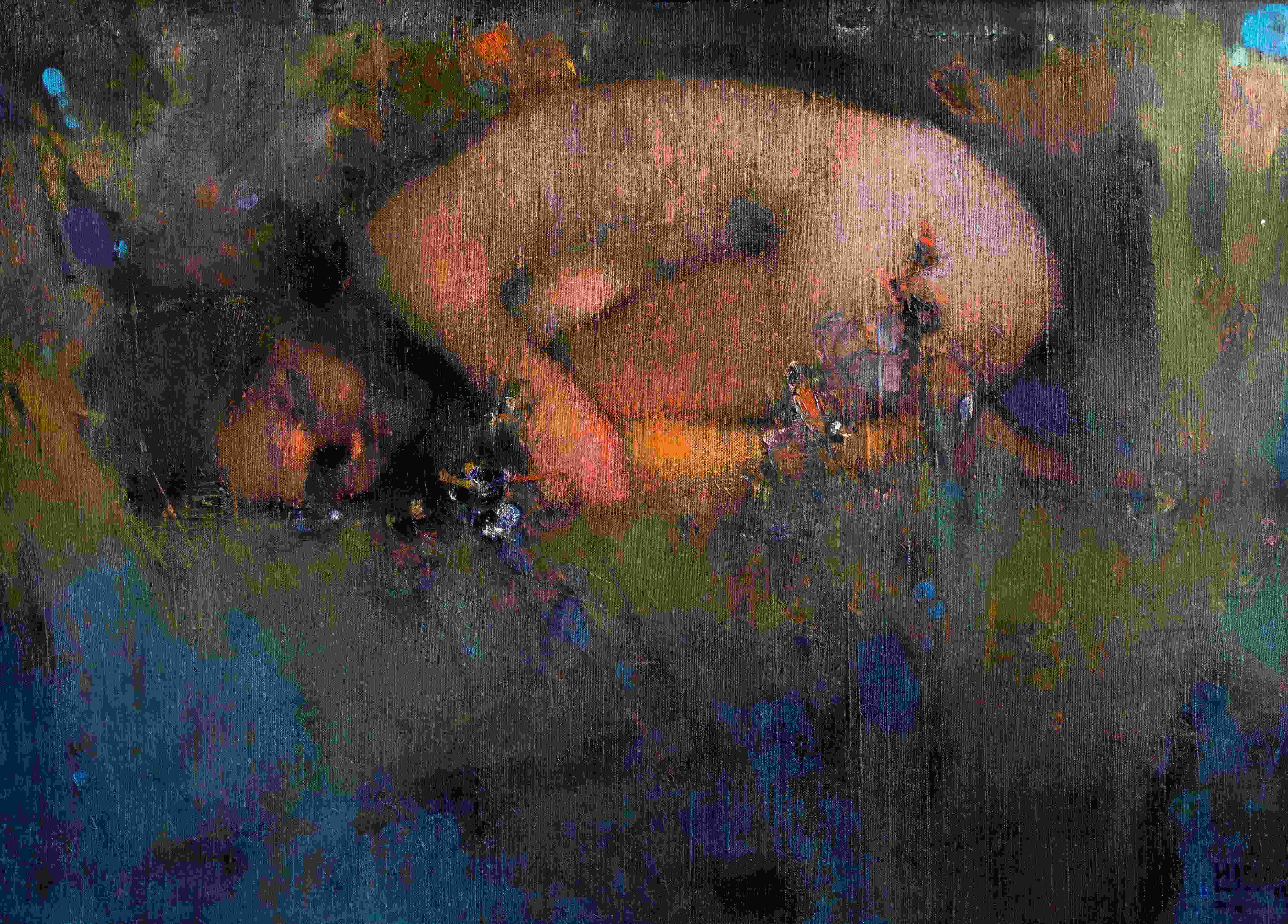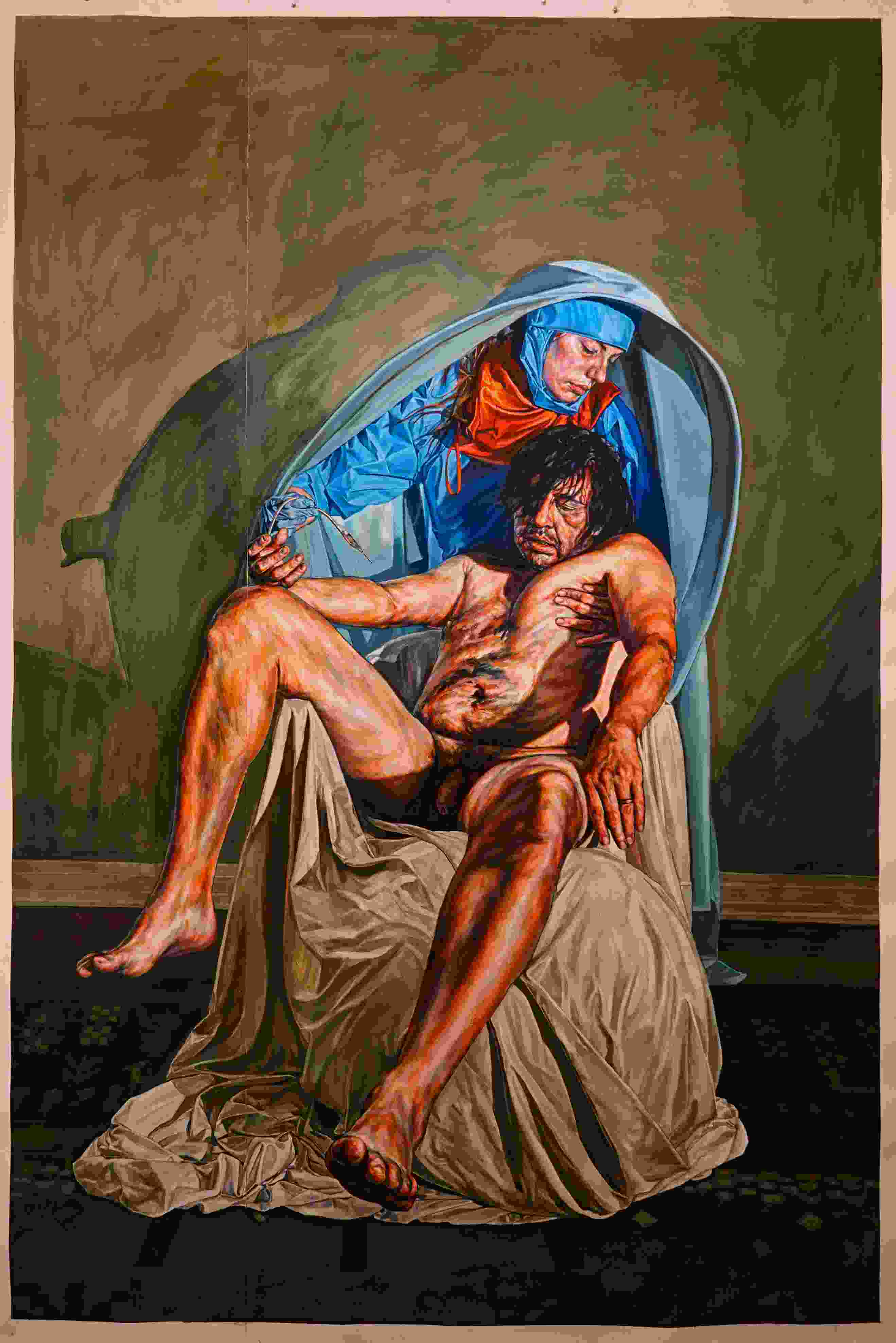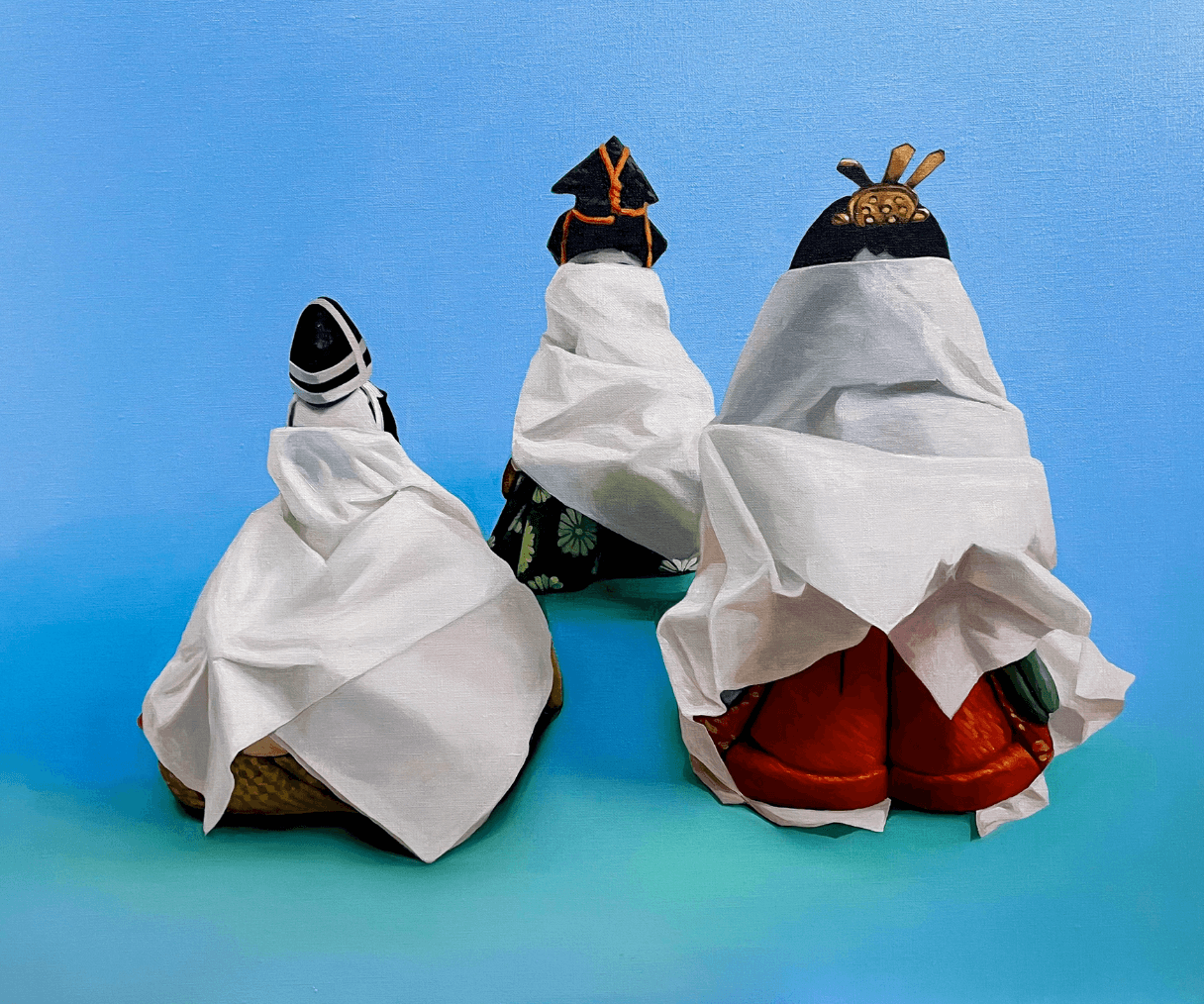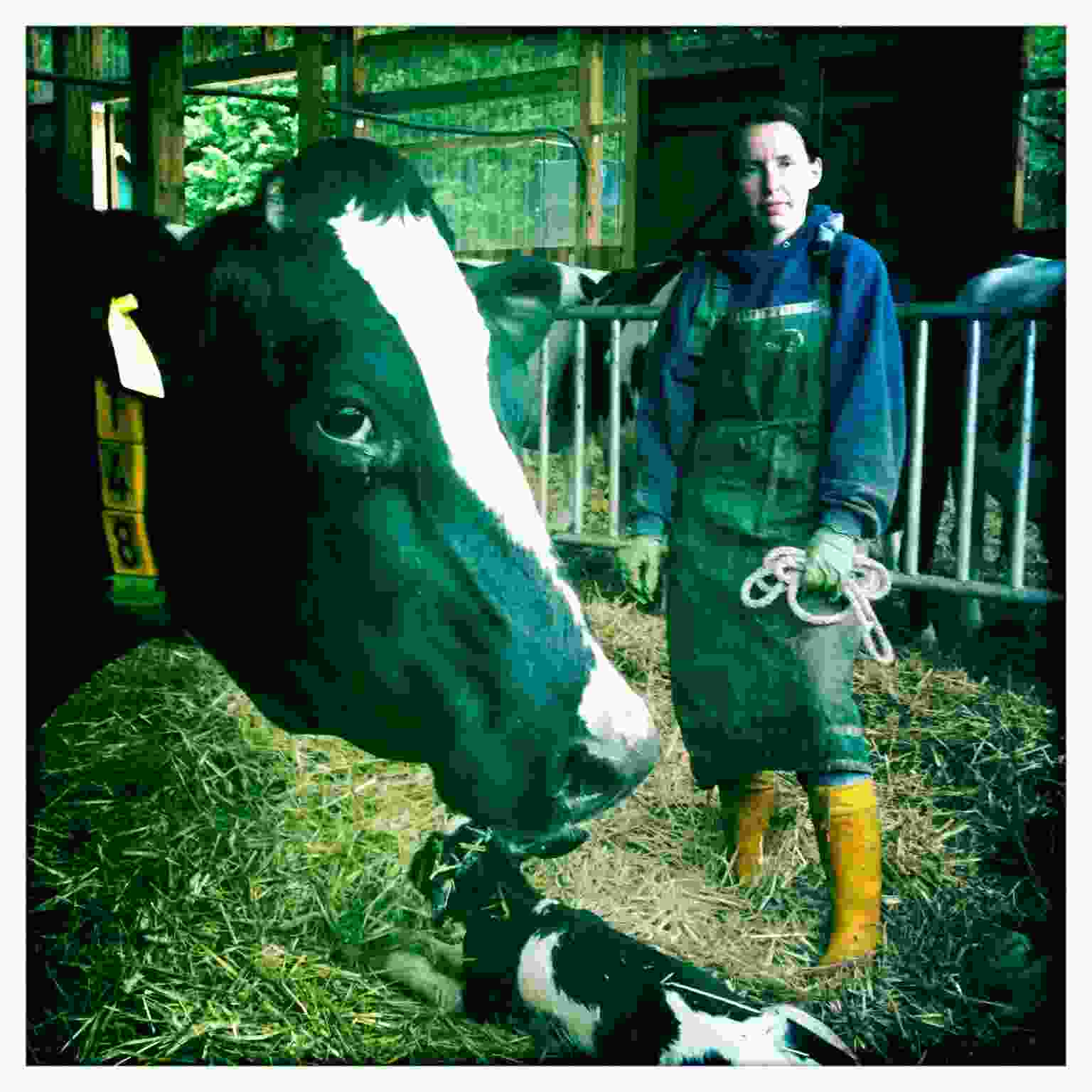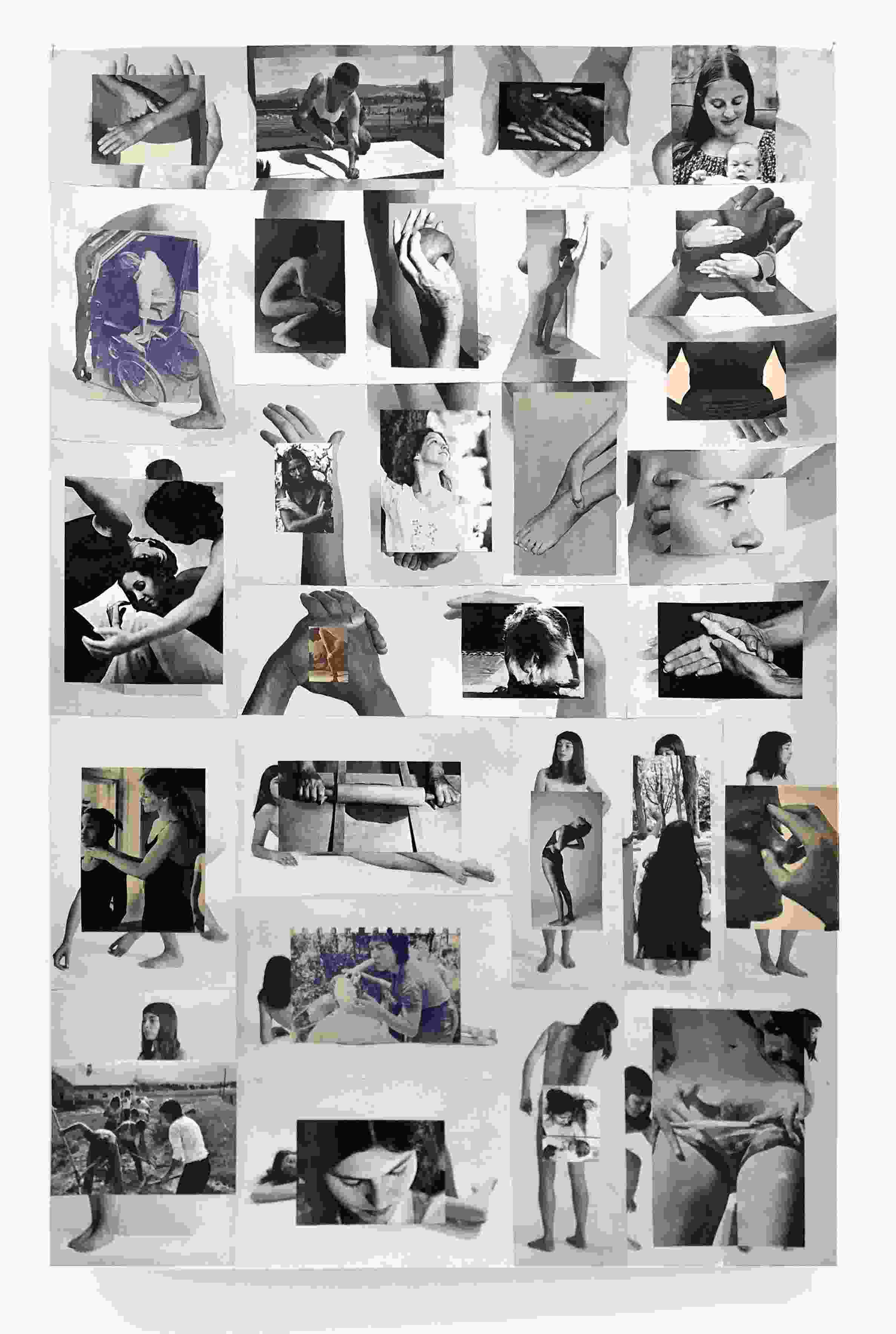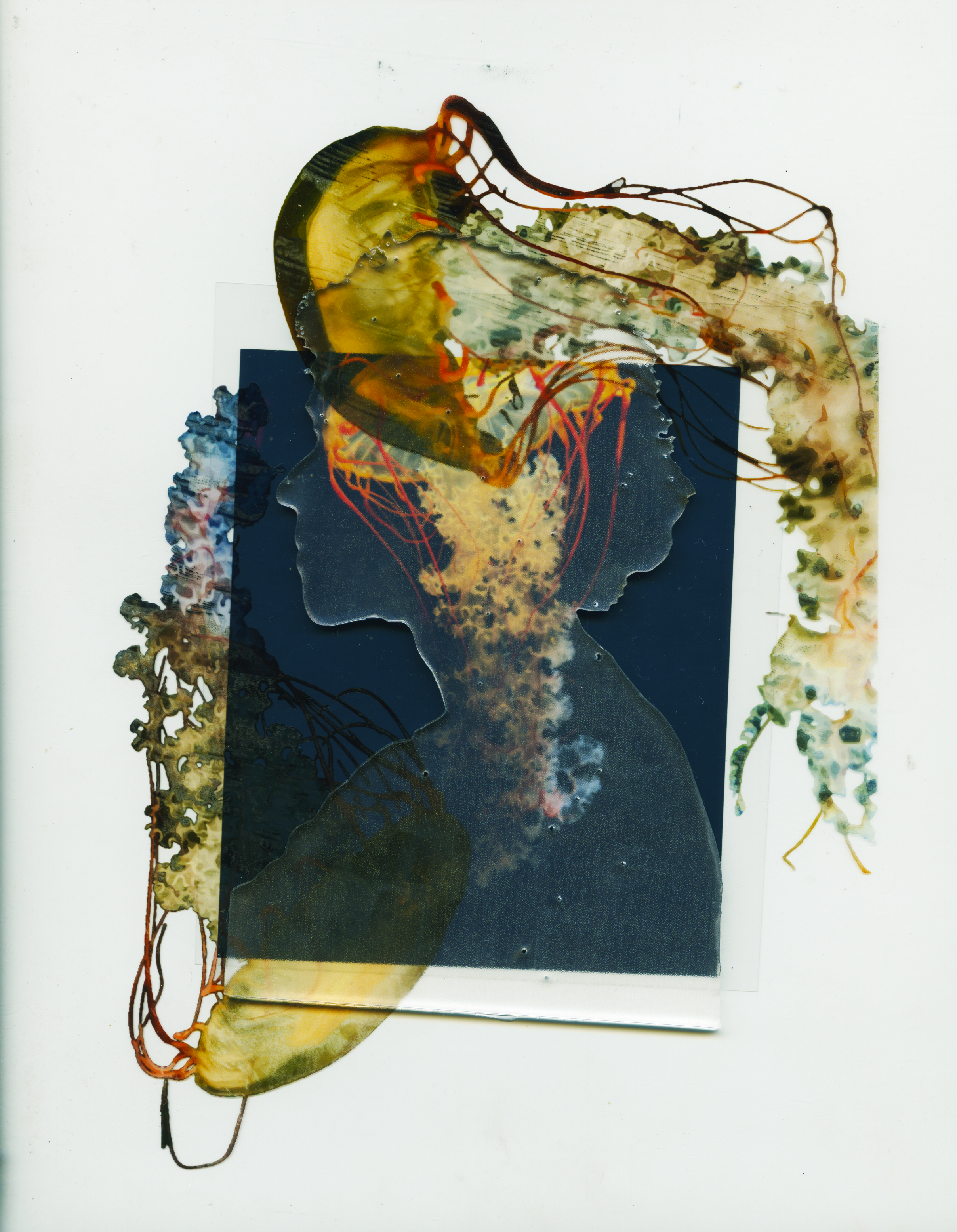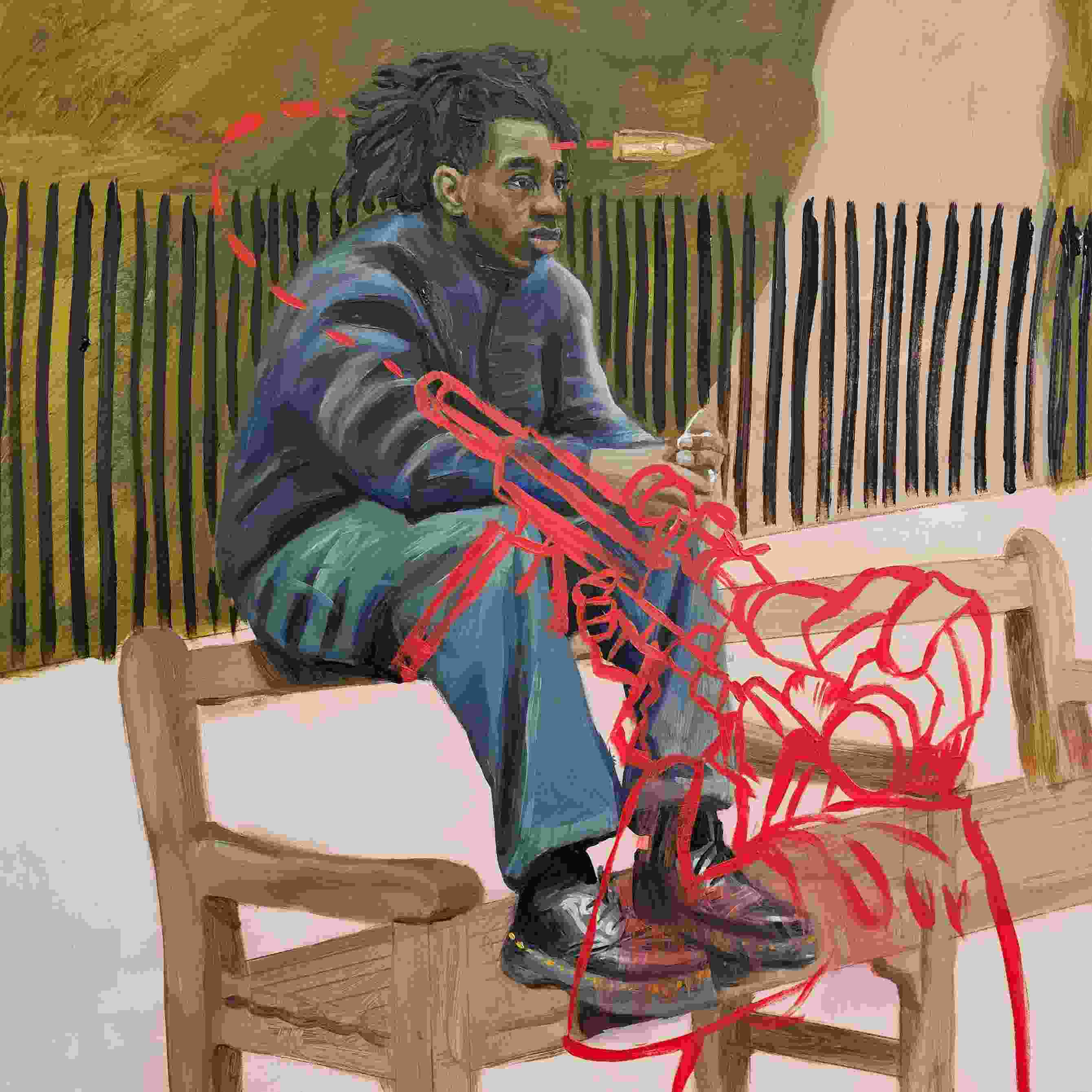Fall 2025 - Diagnosis Issue - The Harvard Advocate
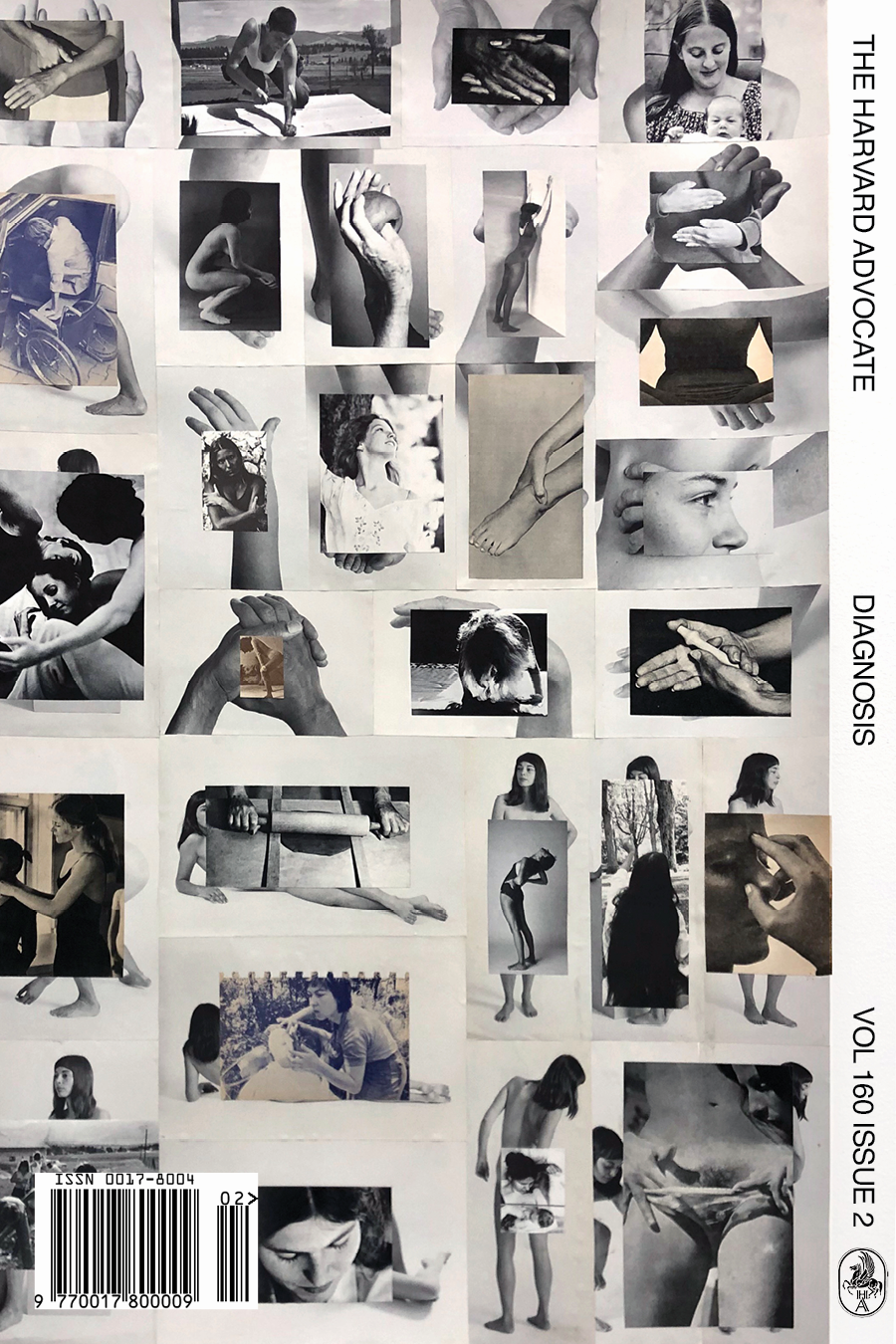
Notes from 21 South Street • Fall 2025 - Diagnosis
Rachel Cusk has written a novel which ends with the word ‘beginning.’ She has written a novel in which every major character goes by the same name. She has written a novel that sounds the same when describing sickness and health, in which the mourning of death is registered in the same tone as the celebration of life. She has written a novel in which artists make art of each other and then critique it; a novel of ideas in which ideas have no authority; a city novel in which the city is never named; a realist novel which enlists whole battalions against realism.
Notes from 21 South Street • Fall 2025 - Diagnosis
I-I-I-I
It is uncovered that, if performed correctly, certain songs of the South could even sever the jugular. (How’s that for soul?). While previously such power had been thought impossible, now– thanks to Ryan Coogler’s latest film Sinners– the blues are actually shown as the harmonica slide mojo bag eternally trailed by that bloodsucking stinger you had thought was mere legend. As if there weren’t enough things to worry about, Sinners coaxes from its cave the thing you’ve only heard whispers of, sensual and preying on a talented cast of proselytes, an otherworldly temptation. Of course, isn’t it always better to know the source of the things you’re hearing, licking their chops, humming in the forest, just a taste?
Notes from 21 South Street • Fall 2025 - Diagnosis
Mindplay is not really a play, so let’s get that straight from the beginning. There were many times as I was sitting in the sparsely populated Calderwood Pavilion theater when I thought, “I am not getting any insight from this, these are just magic tricks.” They were absolutely impressive magic tricks! But magic tricks nonetheless.
Features • Fall 2025 - Diagnosis
Features • Fall 2025 - Diagnosis
I was raised, for three years, in Virginia, where the elementary schools taught us that the Chesapeake was our bay, the Appalachias were our mountains. This was the Virginia I recall, singing an old folk song about the Shenandoah River Valley, Oh Shenandoah, the one that starts, “I long to see you,” and ends, “I’m bound to leave you.”
Features • Fall 2025 - Diagnosis
Features • Fall 2025 - Diagnosis
On February 14, 2021, I lugged two sea-bags, a camera bag, and a Pelican case off a chartered bus full of perfect strangers—though they each knew one another and had for years—up a concrete pier. The crew of the USS Carter Hall was embarking for its “COVID Cruise”; eight months, if we were lucky, at sea, with few opportunities to leave the ship—or the pier. I was boarding the ship as their photographer and journalist to document the work and lives of the crew at sea, work I’d never done on my own to that point. At the end of the routine deployment I would disembark without ceremony, never to board again.
Features • Fall 2025 - Diagnosis
A man in the weight room does not move in synchrony with others. Quite the opposite — he is each in his own world, headphones over his ears like some bellicose gladiator ready to fight until his knees give out. In place of some prancing beast he has the cable machine, its handle stiff and smooth like the tusks of a wild boar. He lunges at these tusks, back locking into position. The eighty-pound weight elevates, hovering by his waist before it plunges to earth with a precipitous clang. After this first tug the gladiator leaps into rhythm, movements widening into distinct extension and retraction of the three-headed muscles at the back of his arms. Again and again he levitates the weight stack, snorting like a wild hog. But a man in the weight room does not hear himself. The only thing he hears is Skrillex screaming in his ears like it’s the end of the world, and so he goes in again for One! Last! Push! After an eternity, the tug of war ends: the man lets go of the boar tusks, which turns into a lifeless hunk of metal once released from his virile grip.
Features • Fall 2025 - Diagnosis
Features • Fall 2025 - Diagnosis
Editor’s Note: The following article is by a team of physicians at Brigham and Women’s Hospital, Massachusetts General Hospital, and Harvard Medical School with a strong commitment to global health equity, reflecting on their working experiences. The case studies they share involve sexual assault and trauma, which may be distressing for some readers.
Features • Fall 2025 - Diagnosis
The desert was decreed to the men. That is why, in my eleventh and final term at Deep Springs, I was called a dairy boy when it was my job to wake up at four to milk the cows at four thirty and do the same thing in the afternoon. The cart we (Trey and I, another member of my class) pushed down to the barn in the dark early morning was the longest-lasting vehicle on campus—constructed some time in the forties, with two mismatched tires and an old DC license plate hanging on with the help of rusted baling wire. The dairy barn is the oldest structure on campus built, yes, by the men and for the men, but really for the persistently female cows, who lumbered in to meet us and eat the grain that we’d put out for them as we prepped their teats for milking. After, as we pushed the cart with a shotgun full of milk back towards the main campus, made, again, by the men and for the men, it was easy to forget what others call me, what I call myself, in the early dawn and majesty of the lighted desert. But that truth lingered in the morning air: it was for the men, this education in that rock over there, this project of reverence.
Features • Fall 2025 - Diagnosis
DIAGNOSIS, IN FIVE ACTS
ACT I: DIAGNOSIS AS POLITIC
In March 2025, we emailed Lisa Mendelman, an Associate Professor of English and Digital Humanities at Menlo College, who has worked on the intersection of mental health diagnoses and race, gender, and affect. Her current book project, Pathologies of Character: Race, Gender, and the Medicalization of Mental Health and American Literature, 1890-1955, investigates how race, gender, sexuality, and class have shaped psychiatric diagnoses. We asked her how she was conceptualizing “diagnosis” in the present age. Here’s what she wrote in return:
Fiction • Fall 2025 - Diagnosis
W E The People entered the home of the Crisis Actor illegally. This is true. Why deny it? We certainly weren’t going to be invited in. There was the matter of him knowing our faces, from those days when we picketed on the gum-spotted sidewalk or confronted him at his car in a parking garage downtown, our accusations drowned out by the scrape of skater boys. And, of course, there was the restraining order. Legal lines had been drawn and, yes, we decided to cross those lines, which resisted no more ably than strands of cobwebs stretched across a basement doorway.
Fiction • Fall 2025 - Diagnosis
I was standing in a field carpeted with light blue flowers. They were so small as to merge together into one mass, giving the illusion that there was nothing beneath them. I stood on a vast blue cloud. The impulse to touch the flowers was too strong to resist, so I crouched down and ran my palm across the tops, just skimming them. As I'd expected, soft as feathers. I closed my right hand around a bunch of the flowers and pressed my fingers into the cold, soft dirt beneath, pulling my fingers towards the centre of my palm and obtaining a handful of wet and compact earth. The ground that I had separated it from gaped back at me. In my upturned hand I studied, looking for anything moving in the dark mass; slithering, crawling, emerging from the nurture below ground. It dawned on me that despite the richness and imperative nature of dirt it was derided. Being dirty was looked down upon and being dirt poor was a term reserved for those in the direst of straits. Even though essential for human life it was marked as unsavoury by humans, for its baseness. The whole clump did seem to be moving; rich with life despite there being nothing discernible, and I brought it up to my mouth, pressing the whole lot to my lips. As much as could fit between my teeth squeezed its way in and the rest pushed in front of my teeth, packing into the region where my gum and inner lip met, the scratchier parts grazing over the surface of my teeth. At first there was no taste, only these textural sensations. My tongue pushed to the base of my mouth as the entire cavity was made full, the firmness becoming wholeness; a well packed clod. It was hard to draw in breath through my nose, but eventually I settled into a rhythm and the dirt sat where it was, my flared nostrils pushing in and out the vital air that I needed. An old man was crossing the blue field as I looked up. He wore a dark grey, or faded black tracksuit, the jacket zipped all the way up, under his chin. On his head was a soft felt cap of a similar shade which threw a band of shadow over his eyes. He shuffled in a manner that said very old but still very fit and healthy. There wasn't anyone else around and I wondered whether he'd noticed me crouched there as he was only some fifty metres away, at the most. The field was completely flat and I could see him as clear as day. As he dissected my line of vision he turned to his right, in my direction, pulling his cap up off of his forehead and baring his tanned skull which was bordered with a thick tuft of white hair. He squinted as he removed it then yanked it back down over his brow, the shadow returning to aid his vision. In his left hand I could now see that he was carrying a rolled newspaper and with his right hand he waved at me. The wave said this: “Hello there stranger crouched down. I'm an elderly man returning from the small shop on the other side of the field where I go to pick up my morning newspaper. I don't usually see anyone on my way there or back, in fact, I've never seen anyone in this field before so I'm a little uncertain as to your purpose here. I'm in no way perturbed but I am equal parts curious and wary as to your presence. I'm designed to offer a greeting but also give you an opportunity to gesture back to me in a way that might reflect the nature of your situation. I'll move side to side a few more times and then relax myself” after a couple more waves the man brought his hand back down to his side and stood still, his shadowed eyes waiting for a response. My breathing was now relaxed and I'd become accustomed to the fixture in my mouth. I tried to move my lips but they were pretty much set in their position, unable to budge. What’s more, there was flavour developing in my mouth and something like a grassy raw meat taste sat on top of my tongue. Underneath it was something else, reminiscent of bitter honey. As I turned these unexpected flavours over the old man was still looking and I wondered how long he would wait for a sign from me. It seemed cruel to want to find out, so I waved with my dirty right hand and after a few seconds he started over towards me, stepping gingerly on the small blue flowers. The sun was shining directly onto his approaching figure and the belt buckle at his waist glinted with each step, catching my eye in a dazzling way that made my eyes sting. ‘don’t ruin my sight’ said my inner voice. His shadow dragged behind him. Once he was in range he called out to me, not shouting but in a raised voice “Hello there son” he continued, shuffling “I saw you crouched down there and thought I'd come say hello, I hope you don't mind. I've never seen anyone around here is all.” I couldn't answer so I just nodded my head. Then I gave the thumbs up, remembering that it was my mouth that was full of dirt, not my hands. The old man pulled up a few feet short of me, looking down at my crouched figure, and I up at him with his slight stoop. He had a quizzical expression but also one that held some recognition. “How queer.” he muttered, and unfurled the paper in his left hand, shaking it out so that it was crisp and flat. “Look at the headline for today.” He held the paper by the top and bottom, facing the front page toward me.
Fiction • Fall 2025 - Diagnosis
It started in the west elevator, the one with the kitschy old rug and the inner door with the hand-crank. Most people avoided the west elevator because of how much it creaked—like every trip it made might be its last. Nevaeh might have been the only one who consistently used it, and so, mercifully, she was alone when she spat up a frond of sage. Bushy, intact, slightly damp with stomach acid. She had been working late and had half a glass of white to finish the evening. Otherwise, nothing was out of the ordinary.
Poetry • Fall 2025 - Diagnosis
The same thing that makes a rat a rat and not a knotweed,
scampering across the third rail at Downtown Crossing.
He is after a half-eaten BLT that somebody has flung
between the tracks. And one of his front teeth is chipped
and he is winning. The thing that makes a knotweed
spread its thighs out west until its veins can supply a body,
then another. What makes a horse a horse if not
the gleeful declaration of such from the seventh train window
that day? There can only be so many poems about
staring Barrels down. A country only being a country at gunpoint
or between the coal-laden tracks of work boots. Instead:
a country is a country because I say so. Because I hold your hand
while waiting for the train and when you reach for my waist
I can think myself a rat stumbling upon a rare feast.
Because when we leave the station the snow will be gray
and falling in lazy circles from the low-hung clouds
like the ash that follows some great fire—
but still, I know we’ll stick our tongues out to catch the flakes
like the small things we are.
Poetry • Fall 2025 - Diagnosis
after Tracy K. Smith
What do you have to say for yourself?
Where are the keys? Why do you shake?
Who do you hope to feed with this sweat?
Who are you fueling? With my hands
behind my back, can you guess the lucky fist?
What does your body have to say for itself?
And its body? And the one after that?
Where do you come from? Where are you going?
How far back was the greenhouse? How far
forward is the graveyard? With your hands behind
your back, can you make a fist? Can you reach
the glove box? Whose beating heart do you hope
to kill with this sweat? One of us always tells the truth.
The other one is driving.
Poetry • Fall 2025 - Diagnosis
Cars angstrom up Abbeyhill, horserace hats bobbing towards
Holyrood Palace with modular suits and kilts. Today’s event is
royal or political just as grace and water are. A car lets a harried taxi
driver out, bestowing the former, while a shop called ‘Return of the
Mac’ advertises sweatshop tartan. And still the beauty of stones and
sash windows, six panelled like the abs of the actor who has a house
nearby and pays tax in fully legal ways. The sky threatens rain and
weather discourse, and I eschew the pub for America like my Irish
ancestors. My America is plundering the other americas for their
coffee beans but I enjoy the seat, peering at ‘Ye Olde Christmas
Shoppe’ through a July fug broken only by steak-bake fumes from
a Greggs van. We go to the polls in two days and the image of
removing soggy pastry past all use and consumption feels too
benign. If the palace walls should fall, water dry up, stone fissure
and windows fall; if the actor’s smile seems only naked-smug, and
all Americas reach for each other; as Christmas becomes neither
here nor there, then or now; if the secular holds and Greggs
crumbles, may we yet find grace beyond spasm of trafficked
generosity. As someone clears their throat in Holyroodhouse, the
taxi driver escapes Abbeyhill and reminds himself to renew his tax.
Poetry • Fall 2025 - Diagnosis
after Ellen Bass
O black bean boy, O owl eyes,
O package of muscle and fur.
My cautious companion, my
in-love-with-me friend. What will we do
without your low grumbles
your hot-water-bottle body
beside us all winter? O sun-scorched nose,
O wacky teeth that can’t bite a thing, O
fluted, veined callalily ears
taking the world straight to the heart.
There is no guy I’d rather sleep with,
no slinky tuxedo like yours.
When you frolic and hop
in your nightly routine, the sounds
of cracked glass and low howls
are like the heartbeats in a womb.
In that embryonic waterfall, we sleep.
Two lucky mothers.
O bloated bladder, O swollen,
sleepy heart. When we nearly lost you,
we sought you in our grief
to ease our grief. We held your exhausted body
to us. O seeing soul, O aperture closing and
widening, catching the landscape
of more than mere humans can know.
Beloved beast, dear body that heals and heals.
Tiny horse, honeyed contralto,
our leaping, whiskered seal —
Poetry • Fall 2025 - Diagnosis
litter the body open will boy / be boat / shudder upon body / be rockabyed / be strangered in body /
lash like slick oil / be boneless / slump downwards / dissect jawbone / be bodied like oil spill / regret
riverboat home / be rowed / into slick summer, street-signed / be eulogized / split film from lip to /
be gutted open / body foolproof / be a bullet home / sleuth sand dunes / be brown-body / hymn
unraveled / be through with desire / fish impaled on foreign language / be proper noun / split his lip
voweled / be harlot / scale the tectonics of teeth / be punch-drunk / slit silt / be three-eyed, spool
open / this cliff / be want / the cusp whole-bodied / be flayed / listerine limericked / be grunt-work /
sex table-salted neural refrain / be kali / war cling-film on tongue / be gutless / scale spliced outwards
/ be derivative / rivered into forest / be orange tree / peeled by sun-shock / be gummed / grapefruit
rot by heat / be heatstroke / snip open livewire of / be lipped / at crossroads / be exit sign / slick-
signed with / be summer-blood / threadbare scythe-cut / be perfect o / lips imitation exorcism / be
cockwhore / fig-fingered on blood fruit / be tongue / slit into silt / be moondust / infinity slid into
encore
Poetry • Fall 2025 - Diagnosis
In the mountains we chewed melons,
sifting everything as two seeds caught
slippery between the rockiest white teeth,
bald 12,000 foot fists, veined with memoratic
rivers, a small feeling of past lives... you are seeing
visions of the long-haired boy from the river
with your neurons in the dark— a Dutch
sans colors, his leathery belly as barefoot
as the operating floor, your heathery hands
shook like a hummingbird with patchy
instinct, tracing bee-lines with purple
chalk, scooping in the cison, hopscotch
with a coda, round and round
we always gnaw on the same subjects,
teetering over a stanza and landing
on an ant bed of spruce and
the impermanence of first loves—the
mountains hold memories the way
muscles do— a cornsilk glacial tear
greases a fishy earthen canal
which you probe with blue gloves
to count centimeters, calling avalanche
from behind the operatic curtain
which opens like the palms of Atlas
to hold the crying pink sun
chewing oxygen and his mother’s bloody
skyscrape, the world gasping for black
while you stand cataloging carmine
rings on a fallen spruce, wondering
how this time of year, seasonless and
shifty, always reminds you of that boy
from the river, how nothing you studied
in medical school ever made sense and yet
the decomposing shells of birds
smell familiar, and the unstitched
threads of your mind are momentarily loosened,
asking me why the present moment
is never lucid, why light impregnates
through smaller objects
and how could the watermelon-shaped caste
cover horizons unbirthed
to your jealous pale eyes,
scalpels to the bark, each old lover
itching the heart which, like the never-ending
sentence, is inflammatory when left
unoperated.

